Liberal tolerance of individual choices may seem like an unmitigated virtue, writes Shadi Hamid. But we ought to recognize that tolerance of all makes national identity harder to sustain. This piece originally appeared in The Atlantic. Following the immense response from this post, Shadi penned a follow up, which can be found here. Both pieces are reproduced below.
I didn’t associate Massachusetts beaches with burqinis—or with Muslims, for that matter. But my family and I were on vacation, and there was a woman in the water wearing the full-body swimsuit. Next to me on the beach, two friends were talking somewhat loudly. The woman said, “That’s what they were trying to do in France”—ban burqinis. Her friend responded nonchalantly, as if he couldn’t imagine anyone else thinking otherwise: “Yeah, that’s so culturally insensitive.” He quickly connected this to President Trump, saying that we were becoming a “meaner” country, presumably like France.
I smiled. This was why I liked, and even loved, the modern liberal instinct, however naïve and unsophisticated: It was bad to be mean to people with different beliefs. We don’t necessarily know why, or perhaps we can’t articulate the political theory behind it, but we feel it, especially now that the man some of us dislike so vehemently seems to us to dislike Muslims himself.
It’s a good instinct to have, and almost certainly the “right” one, if for no other reason than that it helps defuse conflict in pluralistic societies. It’s always better, all other things being equal, to err on the side of accommodation, at least as a first instinct. But this willingness to go beyond mere tolerance, to accept or even embrace difference, doesn’t necessarily come naturally to those who have not been inculcated with the sort of pluralism that is second nature to me and most of my friends.
Even within my family, all Muslim, there is a range of views about tolerance and its limits. One family member gets genuinely angry when he sees Muslim women in America wearing the niqab, or face veil, and he seems open, or at least indifferent, to banning it altogether. (I take issue with this, because in order to avoid self-contradiction a liberal society must be able to accommodate even extreme forms of illiberalism, as long as they do not harm anyone.) Another family member believes that bans of any sort aren’t the answer, yet he quite instinctively reacted negatively when he saw the woman in her burqini, even though it was a far cry from a face veil. It just really bothered him, and he apparently couldn’t help it.
We could have been anywhere. The sailboats weren’t too far off. The water was calm, and I was reminded of the other places I had lived. I could have been in, say, Jordan, but instead I was here. And I didn’t want to be anywhere else.
I imagine at least some people on that beach—especially if they hadn’t seen a burqini before—weren’t entirely comfortable, even if, after a moment’s consideration, they felt guilty for their lapse in empathy. Or they might have felt that too much accommodation of “assertive” cultures and religions, particularly Islam, risked further undermining our shared American or Western identity. But, whatever they felt, they had no choice but to accept it, because our shared identity and our laws also meant that we couldn’t stop people from wearing whatever clothes they wanted to.
The irony was that that same woman probably wouldn’t have been able to wear a burqini in comparable contexts in certain Muslim-majority countries. At any number of private beaches and pools in Egypt, for example, women are not permitted to swim in burqinis, or even to wear them. It’s not illegal to do so, but at private facilities people make their own rules that go beyond the law.
And it’s not only burqinis that evoke such reactions. I’ll never forget the first time I went to Cairo Jazz Club: Because one of my friends was wearing a hijab, they wouldn’t allow her to come in. This wasn’t the religious intolerance of Islamism, but the intolerance of those who opposed it, itself a kind of ideological position.
To live in the United States meant the freedom to not have to worry about that, even in an atmosphere of suspicion and hostility toward Islam and Muslims. I studied the Middle East, but at some point I realized I didn’t want to live in it. I didn’t want to live under it. I wanted to be left alone. But that required leaving other people alone to make their own choices.
This might have been the best way to live, but the absence of a deeper shared purpose, ideology, or mission could also be quite unexciting. As The New York Times columnist Ross Douthat put it, this was “the flat dreariness of liberalism.” Or as the writer Michael Dougherty might put it, “the West” has simply become “what Christendom calls itself after having lost the faith.” To be free meant to give up on an ideological mission, and that, too, came with its own costs.
***
In the days following the publication of this initial post, Shadi received an immense amount of feedback. This prompted a response post, reproduced below.
***
When I wrote a largely personal, impressionistic piece last week about the burqini, it elicited one of the most charged reactions I’ve seen about anything I’ve written. The piece—or at least one reaction to the piece—went viral. The subtitle (“Is there any right way to react to the burqini?”) bothered many readers, who felt that even posing the question left open the possibility that it might be answered incorrectly.
In the piece itself, I defended the right of women to wear whatever they want wherever they want to, as I long have. But the burqini (along with the headscarf and the face veil) is such a charged topic precisely because of the reactions it elicits on both sides of the debate. Freedom of choice, autonomy, and individual agency are at the heart of the classical liberal idea. They’ve never been defended consistently by liberals, including liberal greats like Thomas Jefferson or John Locke, but the basic principle underlying these ideas has been clear: that people should be able to pursue their own conception of the Good, as long as they don’t harm anyone in the process.
Taken to extremes, though, privileging personal autonomy over everything else comes at a cost, and that cost is something that all liberal societies have to contend with, without one side lobbing charges of “thoughtcrime” at the other. (The reverse is also true: privileging the often nebulous idea of “national identity” can come at the cost of personal freedoms).
As The Washington Post’s Carlos Lozada recently noted in an article quoting Samuel Huntington, the fundamental question facing Western democracies today isn’t “which side are you on,” but rather “who are we?” The burqini and what it represents—Muslims expressing religiously conservative preferences—challenges certain Western conceptions of national identity, particularly in staunchly secular contexts like, say, France, where wearing the headscarf in public schools is prohibited by a law passed in 2004. I find this to be a flagrant violation of freedom of conscience and freedom of religion, but a majority of French voters, as expressed through their representatives, disagree with me. France, unlike the United States, has an ideological orientation based around an aggressive, even radical, secularism. Is it not the right of French citizens, collectively as well as individually, to express that national identity, however much I (or any other American) disagrees with it?
One could argue that prospective restrictions on individual freedom should always require a high legislative threshold—say, a supermajority. But even by that standard, France’s 2004 law would have passed handily (494 voted in favor, with only 36 against). In short, the French have answered the question of “who are we” in a particular fashion, and it has come at a cost.
Having and seeking a communal or, in this case, national identity is something that comes rather innately to people, even if they can’t necessarily articulate that need clearly. It’s just a question of what form that sense of community and belonging takes, and just how exclusionary it ends up being. But any communal identity is almost by definition bound to be somewhat exclusionary, and this is not something to which liberals are immune.
American liberals, in the political rather than classical sense of the word, may emphasize choice and autonomy (just as American conservatives do), but their conception of choice has its limits, leading to a paradox that can’t easily be resolved. They find themselves able to empathize with a woman wearing a burqini, but less so with those who are uncomfortable with a woman wearing a burqini. Voicing discomfort with a woman wearing a burqini (due to concerns around “national identity”) is an expression of personal choice, as long as the person in question doesn’t do anything to stop the woman from wearing a burqini—her legal right according to the American legal and constitutional framework.
I can’t propose a ready solution to this tension, in part because there isn’t one. What legal scholar Stanley Fish calls liberalism’s “inherent contradiction” is something built into the modern democratic project. It is sometimes expressed as whether or not we should “tolerate intolerance.” But this doesn’t quite capture it, because we are all, ultimately, intolerant of some things rather than others. At the heart of the debate is whether we’ve chosen the right things to be intolerant of.
The Brookings Institution is committed to quality, independence, and impact.
We are supported by a diverse array of funders. In line with our values and policies, each Brookings publication represents the sole views of its author(s).
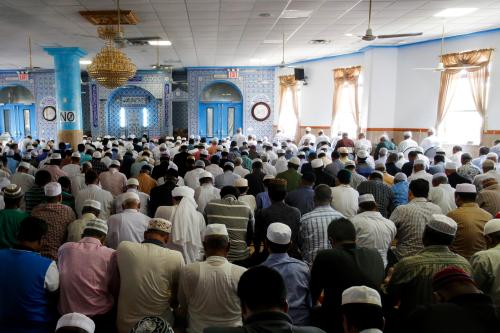
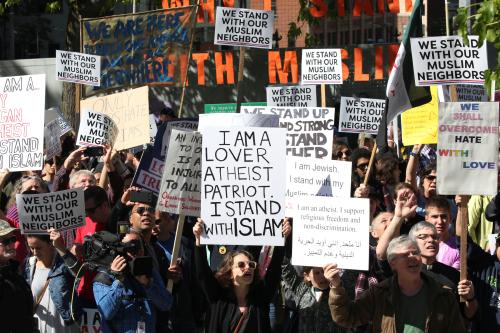
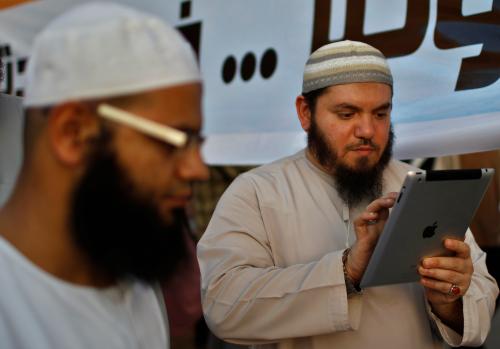
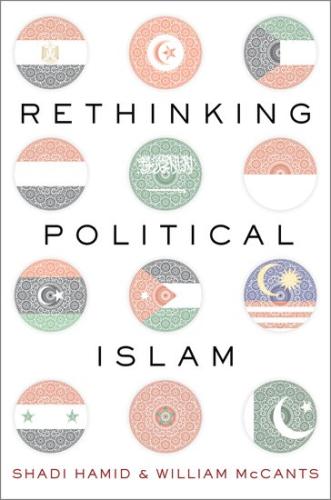
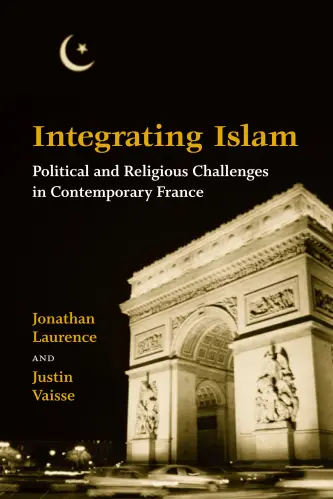
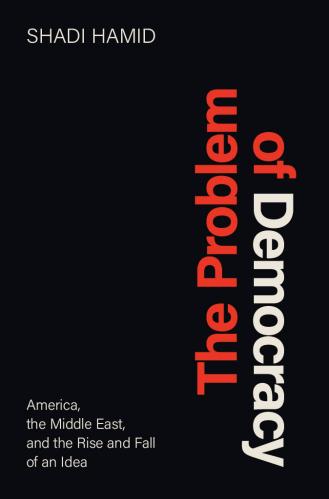




Commentary
Op-edThe dilemma of the burqini
July 25, 2017